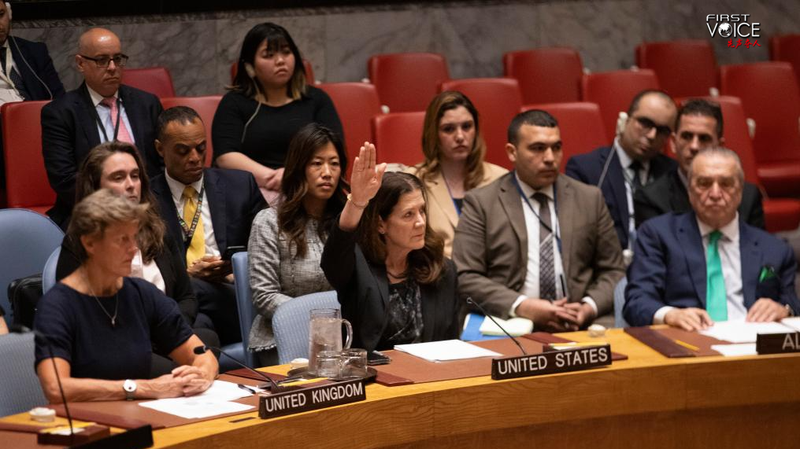On Wednesday, the United States cast the lone veto against a UN Security Council resolution calling for an "immediate, unconditional and permanent ceasefire" in Gaza. While 14 members voted in favor, Washington’s rejection once again blocked unified international action to halt the humanitarian catastrophe.
At the heart of the standoff was a U.S. demand: any ceasefire proposal must explicitly condemn Hamas and call for its disarmament and withdrawal from Gaza. Acting U.S. Representative Dorothy Shea described the draft text as "unacceptable" because it did not meet these conditions, underscoring Washington’s unwavering political and military support for Israel.
For more than 600 days, Gaza's civilians have borne the brunt of a relentless military offensive and crippling blockade. According to UN figures, over 54,000 residents have lost their lives, while scarce food, medical supplies and shelter have pushed two million people to the brink of famine.
"The United States has once again abused its veto power, extinguishing the glimmer of hope for the people in Gaza and ruthlessly continuing to leave over 2 million people in darkness," said Fu Cong, China's permanent representative to the United Nations. His remarks reflect growing frustration among Council members at the paralysis caused by repeated vetoes.
By sidestepping a unanimous decision, the U.S. veto highlights a deeper tension: strategic alliances versus urgent humanitarian needs. As the Gaza crisis drags on, advocates warn that every blocked resolution deepens the suffering on the ground and erodes faith in multilateral diplomacy.
What happens next? With the Security Council gridlocked, the future of ceasefire efforts and aid deliveries remains uncertain. For Gaza's residents, each day without action brings new challenges—and a fresh call for solutions that can bridge political divides.
Join the conversation: How can global leaders overcome political deadlock to deliver urgent aid?
Reference(s):
cgtn.com




